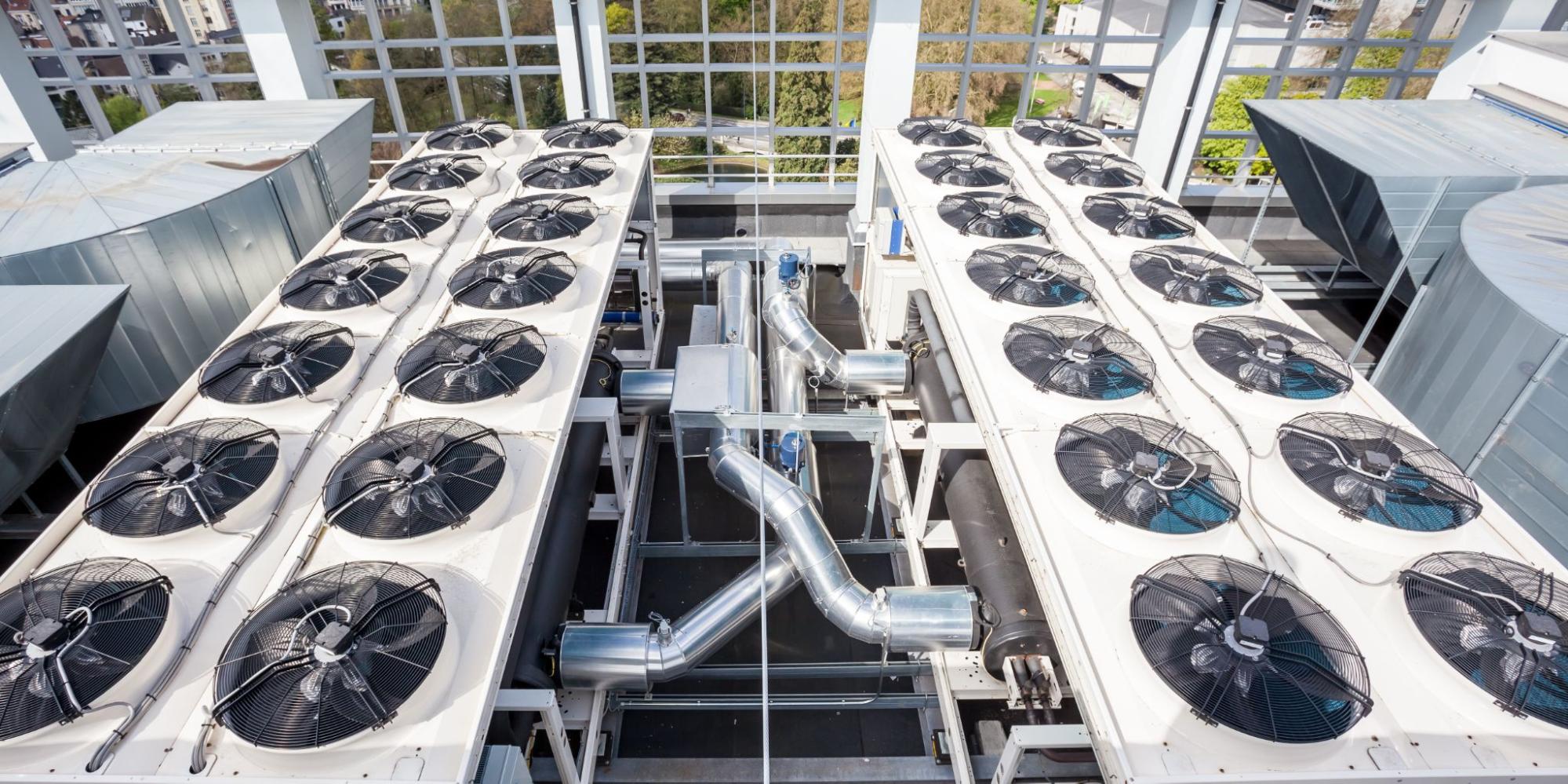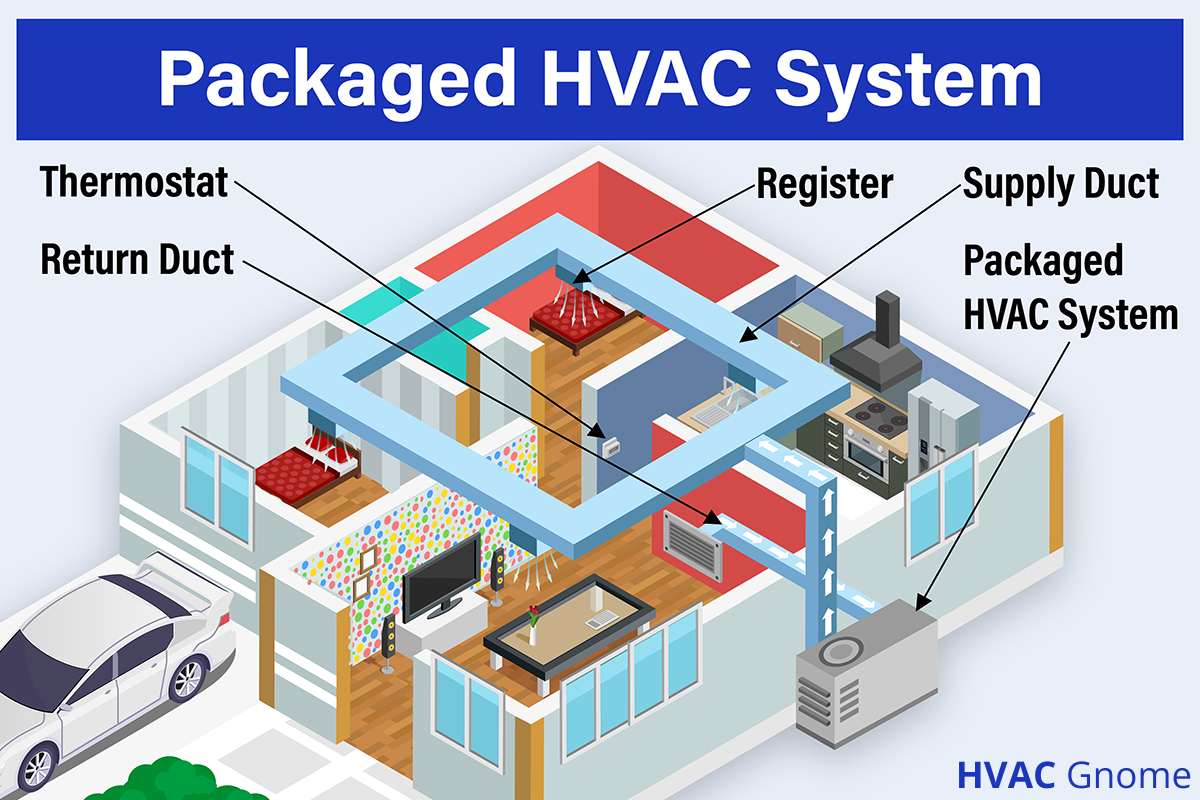An Extensive Consider A/c Solutions and Their Effect On Power Performance and Cost Financial Savings
The function of HVAC solutions in improving energy effectiveness and achieving expense savings is more crucial than ever before, as services and homeowners look for lasting remedies in a progressively eco-conscious world. With technological innovations like smart thermostats and high-efficiency elements, the capacity for enhancing system performance is vast. Yet, real impact of these technologies depends mainly on routine maintenance and aggressive problem monitoring. As we discover the intricate connection between cooling and heating systems and functional expenses, including the change towards eco pleasant choices, the concern occurs: just how can these strategies be efficiently executed to make the most of both economic and environmental benefits?

Significance of A/c Systems
cooling and heating systems are an important component of modern-day structures, playing a critical duty in keeping healthy and comfy interior atmospheres. These systems, encompassing air, ventilation, and home heating conditioning, are necessary for managing temperature level, moisture, and air quality, thereby making sure the health of owners. Effective cooling and heating systems add dramatically to producing an optimum interior environment, which is important for both business and residential areas.
In industrial buildings, HVAC systems are important to providing a productive and secure setting. By controlling indoor environment problems, these systems assist stop the growth of mold and the spread of airborne contaminants, thus guarding the wellness of workers and customers. Furthermore, in residential setups, heating and cooling systems boost living problems by supplying regular thermal convenience and boosting interior air quality, which is vital for general health.
Additionally, the style and upkeep of heating and cooling systems have a straight influence on energy intake and operational prices. Effectively developed and kept systems can dramatically lower power usage, bring about minimized utility expenses and a smaller sized carbon impact. The effectiveness of these systems therefore plays a crucial role in promoting sustainability and energy conservation within buildings, highlighting their importance in the modern building landscape.
Breakthroughs in A/c Innovation
Technology in HVAC modern technology is changing the way buildings take care of indoor climates, ushering in a new period of effectiveness and control. Current innovations have actually focused on optimizing energy usage while enhancing user comfort. One notable growth is the integration of clever thermostats, which utilize expert system to learn occupancy patterns and adjust temperatures as necessary, lowering unneeded energy use.
Variable Refrigerant Circulation (VRF) systems stand for an additional substantial leap ahead. These systems enable for exact temperature level control in various zones of a building, enhancing comfort and decreasing power waste. VRF modern technology is especially useful for big commercial rooms, supplying flexibility and scalability.
Additionally, the development of Net of Points (IoT) tools has transformed a/c systems into interconnected networks with the ability of real-time data collection and evaluation. This connection makes it possible for anticipating maintenance, making sure systems operate at peak effectiveness and minimizing unforeseen downtime.
In addition, developments in products and design, such as using high-efficiency coils and compressors, have enhanced total system efficiency - Heating Contractor. The fostering of eco-friendly refrigerants likewise underscores the sector's commitment to sustainability
These technological developments are critical in decreasing operational costs and environmental impact, setting brand-new criteria for constructing climate management.
Cooling And Heating Upkeep and Efficiency
Ensuring ideal performance of cooling and heating systems extends past technical improvements; it additionally pivots on efficient upkeep practices. Normal upkeep is crucial for sustaining performance, minimizing energy consumption, and expanding the life expectancy of cooling and heating systems. The key goal is to make certain that all components operate at their peak capacity, consequently reducing energy wastefulness and maintaining consistent indoor convenience levels.
Routine upkeep jobs, such as cleaning or replacing air filters, examining cooling agent levels, and examining ductwork for leaks, are crucial for protecting against unneeded pressure on the system. Unclean or clogged filters can obstruct air flow, triggering the system to function more difficult and eat even more power. Furthermore, insufficient cooling agent levels can reduce cooling down effectiveness, resulting in greater operational costs.
In addition, routine evaluations by certified experts can identify click here to find out more potential concerns before they escalate into costly repair work or system failings. These assessments typically include checking electrical connections, calibrating thermostats, and ensuring the overall integrity of the heating and cooling system. By dealing with minor troubles early, property owners and businesses can stay clear of unexpected malfunctions and improve power effectiveness.
Affordable Heating And Cooling Solutions
For those looking to obtain the most out of their air, home heating, and air flow conditioning systems without damaging the financial institution, checking out affordable cooling and heating options can make a significant distinction. One immediate procedure is to invest in programmable thermostats, which permit users to set particular temperatures for different times of the day, maximizing power usage and decreasing unneeded usage. By automating temperature adjustments, homeowners can accomplish considerable financial savings on power expenses.
Routine maintenance is one more important component of affordable HVAC management. Ensuring that filters are cleansed or changed on a regular basis, ductwork is secured, and systems are serviced by experts can protect against costly repairs and enhance system long life. Preventative maintenance not just preserves system effectiveness yet also helps in preventing unanticipated breakdowns that can bring about costly emergency repair services.
Furthermore, retrofitting existing systems with energy-efficient parts, such as variable speed electric motors or high-efficiency compressors, can be a prudent financial investment. These upgrades boost operational efficiency, minimize energy use, and can often be implemented at a portion of the price of a full system substitute.
Ecological Effect Decrease
Minimizing the ecological wikipedia reference effect of HVAC systems is essential in today's pursuit of lasting living. Heating and cooling systems are significant contributors to energy consumption, making up virtually 40% of power usage in industrial buildings. This energy demand typically relies upon nonrenewable fuel sources, causing greenhouse gas exhausts and environmental deterioration. Transitioning to much more efficient systems, such as those making use of renewable resource resources, can significantly minimize these effects.
Technological developments in a/c design and operation, including the integration of clever thermostats and energy-efficient heatpump, are pivotal in lowering carbon impacts. These innovations permit enhanced energy usage, decreasing waste and boosting general system efficiency. Additionally, embracing routine maintenance techniques ensures HVAC systems run at peak effectiveness, additional cutting unnecessary energy usage.
Furthermore, using environmentally friendly refrigerants is important, as standard cooling agents, like CFCs and HCFCs, have been terminated due to their ozone-depleting residential properties. Modern options, such as hydrofluoroolefins (HFOs), deal decreased ecological risks, aligning with global environmental procedures. By welcoming these lasting practices, heating and cooling services can play a transformative duty in lowering environmental impacts, advertising energy performance, and cultivating an extra sustainable future.
Final Thought

Furthermore, the design and upkeep of A/c systems have a direct influence on power consumption and functional costs. Normal maintenance is crucial for sustaining effectiveness, minimizing power usage, and expanding the life period of HVAC systems. Heating and cooling Learn More systems are considerable contributors to energy usage, accounting for almost 40% of power use in business buildings. In addition, adopting regular upkeep practices ensures Cooling and heating systems run at peak performance, further reducing unnecessary power consumption.
The shift to ecologically pleasant Heating and cooling systems even more advertises and minimizes operational expenses sustainability. (Heating Contractor)